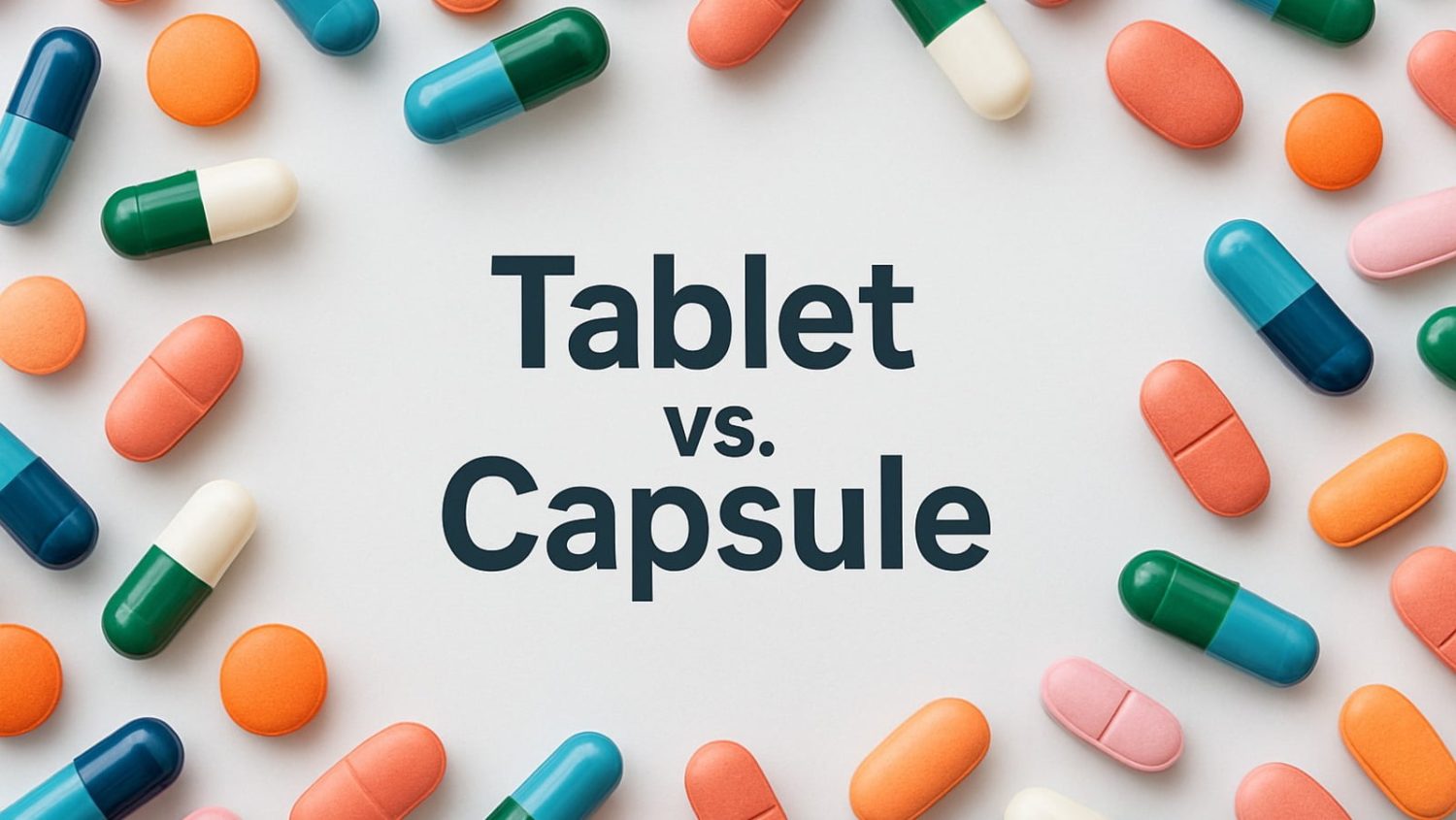
If you’re developing a new medicine or supplement, one of the first big questions is: Should it be a tablet or a capsule?
It’s not just a matter of appearance. The choice between tablet vs capsule affects your formulation, production costs, shelf life, consumer experience, and even how your product is perceived in the market.
Let’s break down the differences in practical terms so you can decide which dosage form makes the most sense for your products and your business.
What Are Tablets?
Tablets are made by pressing various powdered ingredients together to result in a compact, solid dose form. The powder mix contains active ingredients (APIs) and excipients. The former is the lead role as it’s responsible for a tablet’s health effects. The latter is like the supporting cast that helps remain the APIs stable, potent, and released properly.

A tablet can be shaped as a disc, oval, or even an unusual look. It may have coatings for taste masking, easier swallowing, or controlled release. It can also be made chewable, effervescent, or orally disintegrating.
The Pros of Tablets
- Cost-Effective: The excipients used in tablets are generally cheaper than the gelatin used in capsules. Plus, the tablet manufacturing process is simpler. These factors make tablet production less expensive than capsules.
- Longer Shelf Life: Once properly stored, tablets can be more stable and last longer than capsules.
- Ease of Administration: Chewable tablets, ODTs, and effervescent tablets make ingestion easier for children and those with difficulty swallowing.
- Higher Doses: A single tablet contains a higher amount of active ingredients than a single capsule.
- Easy to Split: Tablets can be scored. The score line allows cutting a large pill in two halves for dosing flexibility.
- Variable Release: Tablets can come in various release formats, including immediate release or extended release.
The Cons of Tablets
- Less Palatable: Most tablets taste bitter. Though they can be flavored, they may leave an unpleasant taste in your mouth.
- Trouble Swallowing: Tablets can be a little bit harder to swallow than smooth capsules.
- Slower-Acting: Tablets may take longer to work. They are, on average, absorbed into the system more slowly than capsules.
- Uneven Breakdown: Some tablets are likely to dissolve unevenly in the digestive tract. This can affect their effectiveness.
What Are Capsules?
Totally different from tablets, capsules come in a small shell to enclose the active ingredients. The shell is soluble and usually made from gelatin or plant-based polymers. Not only powders, but the capsule shell can also house granules, miniature pellets, liquids, or oils.
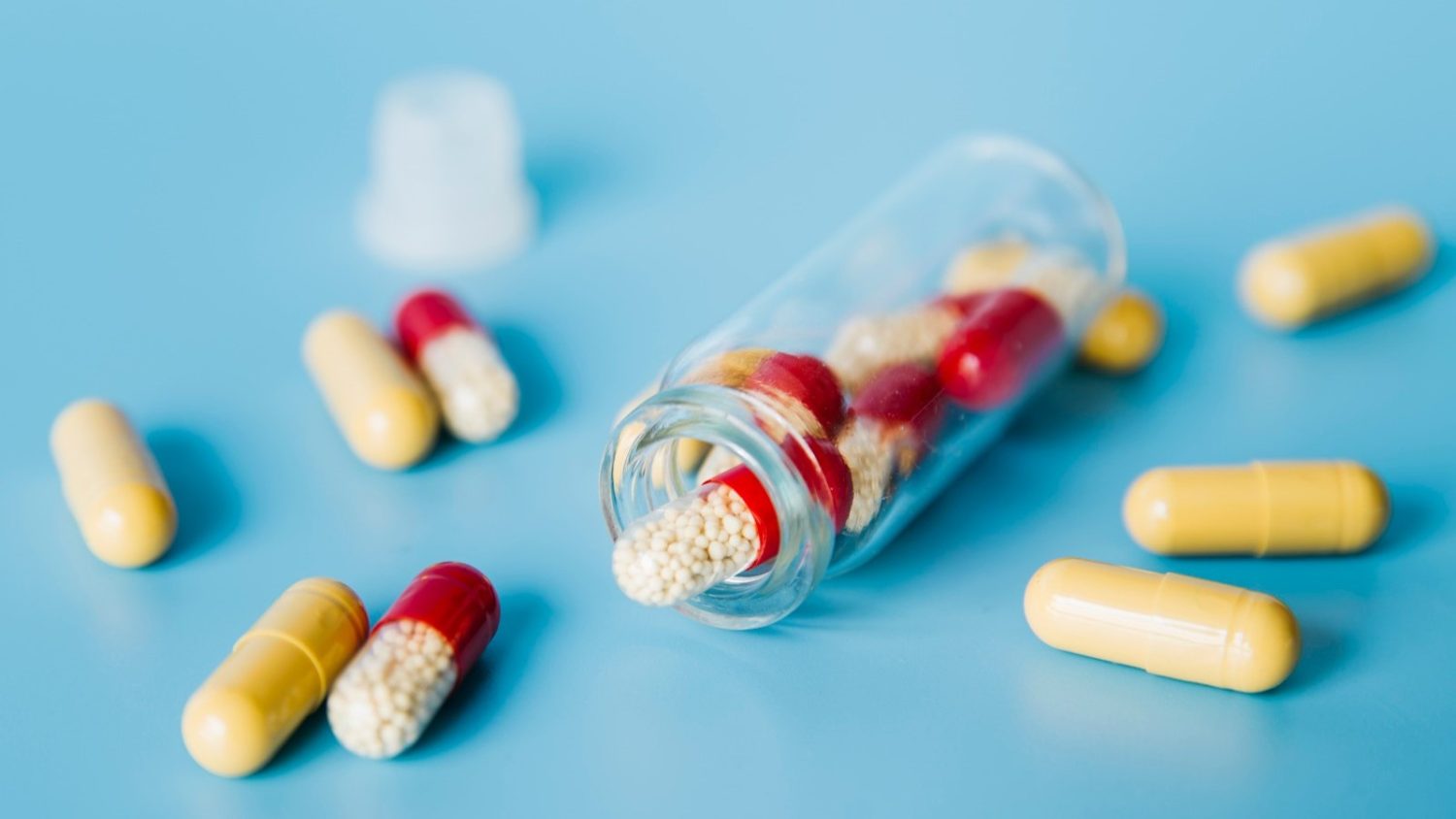
Capsules can be two-piece hard-shelled or softgels. They’re excellent for masking unpleasant odors or tastes of the ingredients thanks to the casing. This solid dosage form is easier to swallow and faster to absorb than tablets.
The Pros of Capsules
- Easy to Swallow: The slippery gelatinous shell allows capsules to go down smoothly.
- Tasteless: Capsules don’t have much unpleasant flavor or odor.
- Fast-Acting: Capsules can break down more quickly than other dosage forms. This ensures more efficient absorption.
- Protective Barrier: The outer shell keeps the capsule potent longer by shielding ingredients from moisture, air, and light.
- Customizable: More capsule options are available, including doses and contents.
The Cons of Capsules
- Less Stable: Capsules can be sensitive to humidity, oxygen, or sunlight. These factors can affect their potency and quality.
- Shorter Shelf Life: Due to the sensitivity, capsules generally have shorter expiration dates than tablets.
- Lower Dose: Compared to a similarly sized tablet, a capsule may have limited capacity to accommodate the same dose.
- Animal Products: Gelatin capsule shells are usually derived from animals. So, they may not be a good choice for vegetarians and vegans.
- Cost: Manufacturing capsules, especially those containing liquids, can cost more than tablets.
Capsule vs Tablet Prices
If you want to develop a new drug or supplement, tablets tend to be a more cost-efficient form to produce than capsules. Why? Capsules need a pre-made gelatin or vegetarian shell to encase the ingredients. This adds raw material expense and slows output.
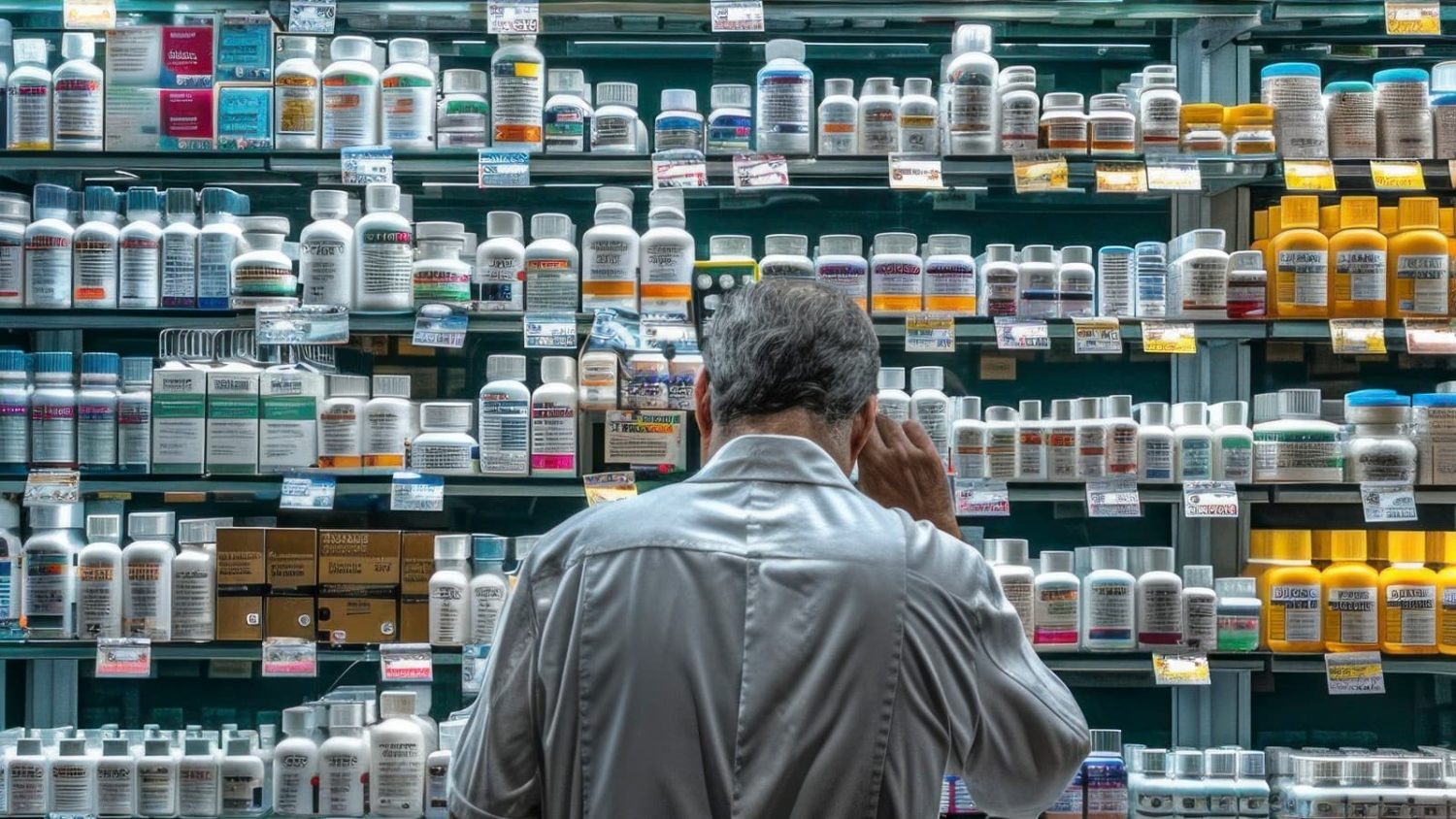
By contrast, tablets are made by direct compression of powders into pills. The machines—tablet presses—work fast and produce at high volume, especially the automatic ones. And a big plus is that you don’t need to source an outer shell. This makes tablets cheaper to manufacture.
The manufacturing difference carries over to pricing. Tablets are often more affordable than capsules for the same dosage or product.
For example, take a look at these medicines and supplements you can find at Walgreens.
The painkillers shown below are from the same brand. You can see that for the same 200-mg 200-count, the liquid-filled capsules cost more than the tablets. That’s because the liqui-gels may carry a small premium to cover higher manufacturing costs.
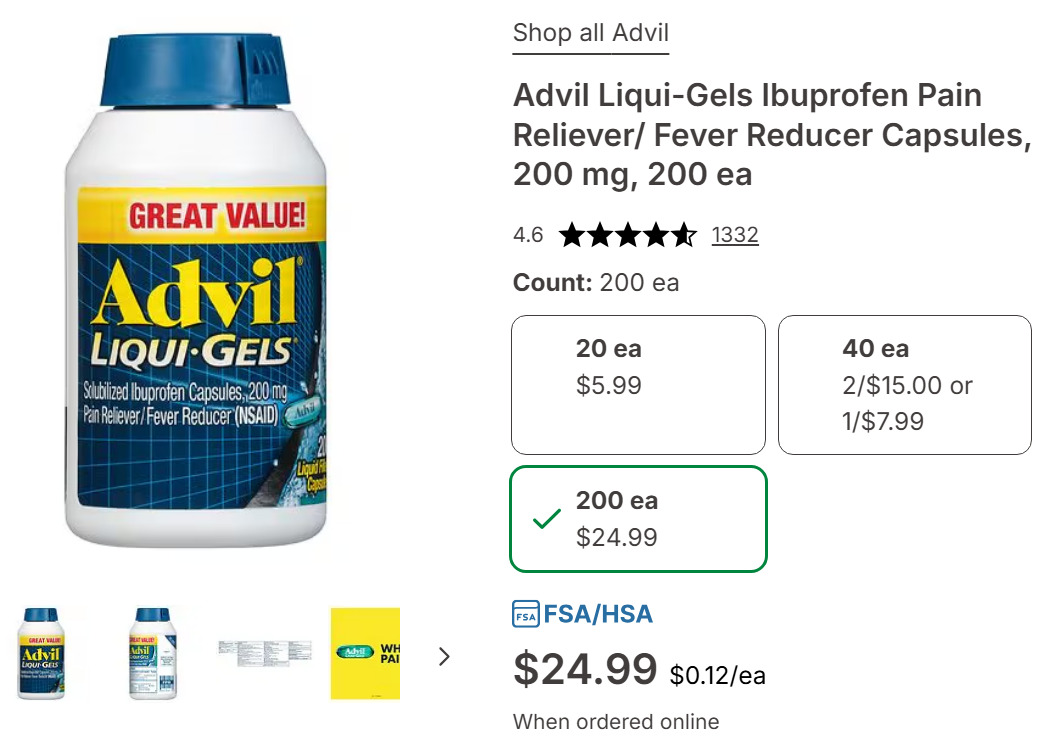
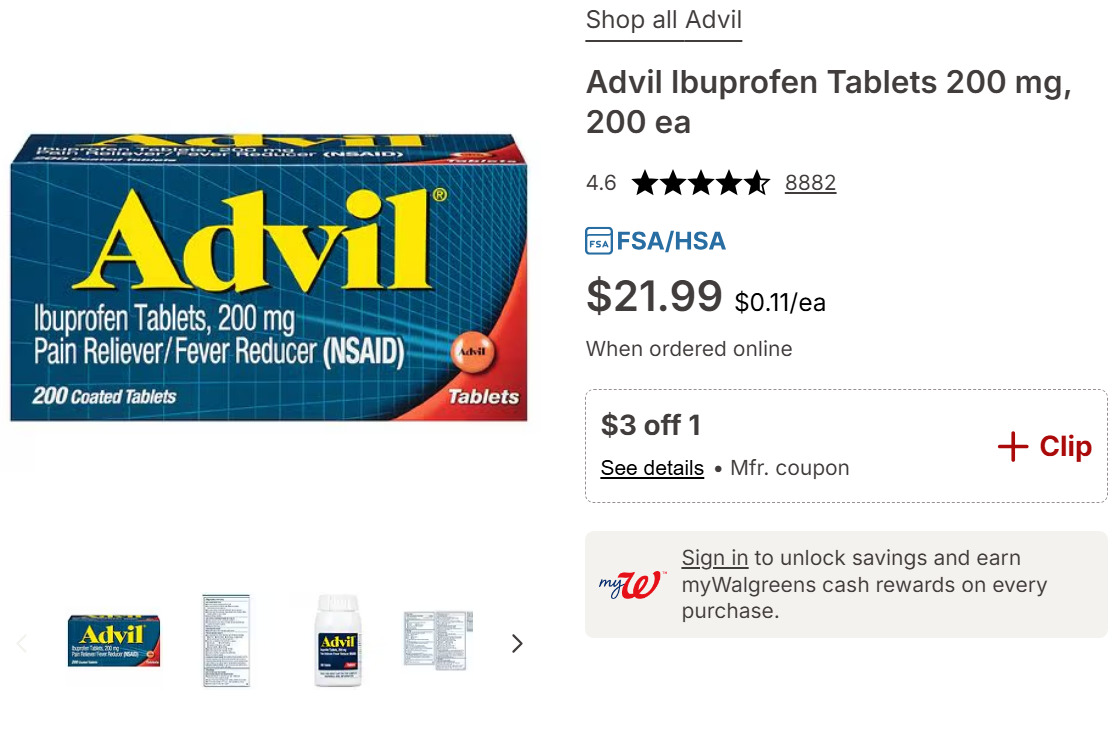
It also often happens with many health items. Here are two vitamin D3 supplements. Both come with 1000 UI per dose. Though the bottle counts differ, each tablet is still slightly cheaper than each capsule.
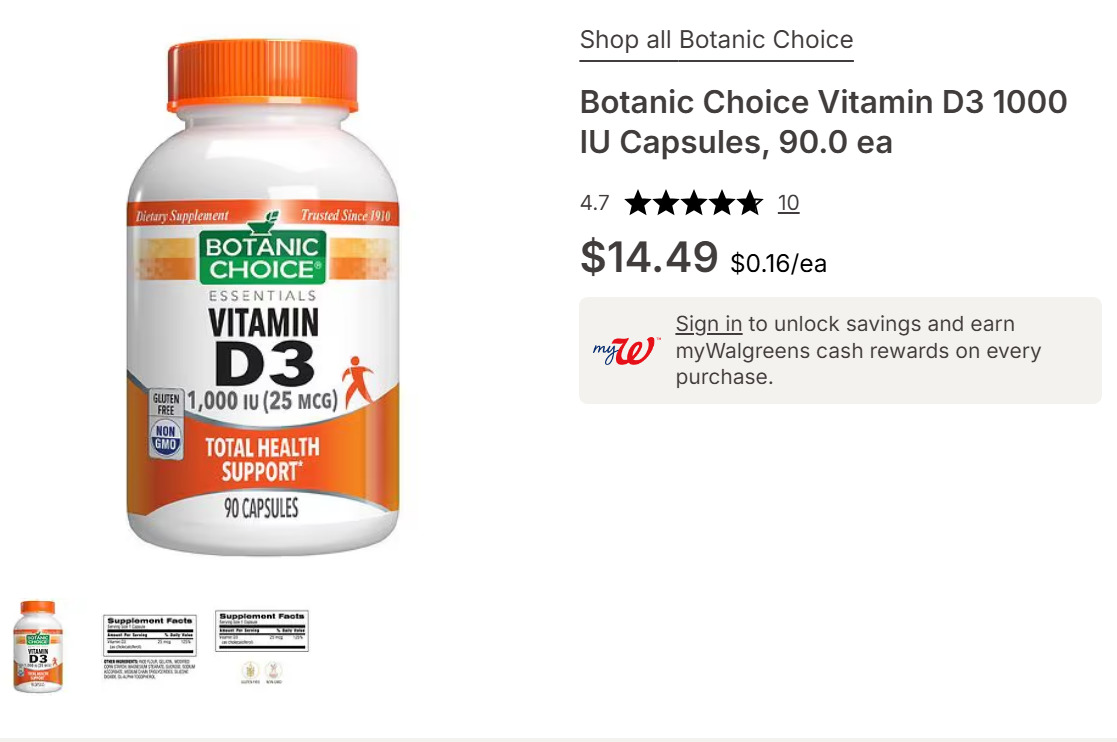
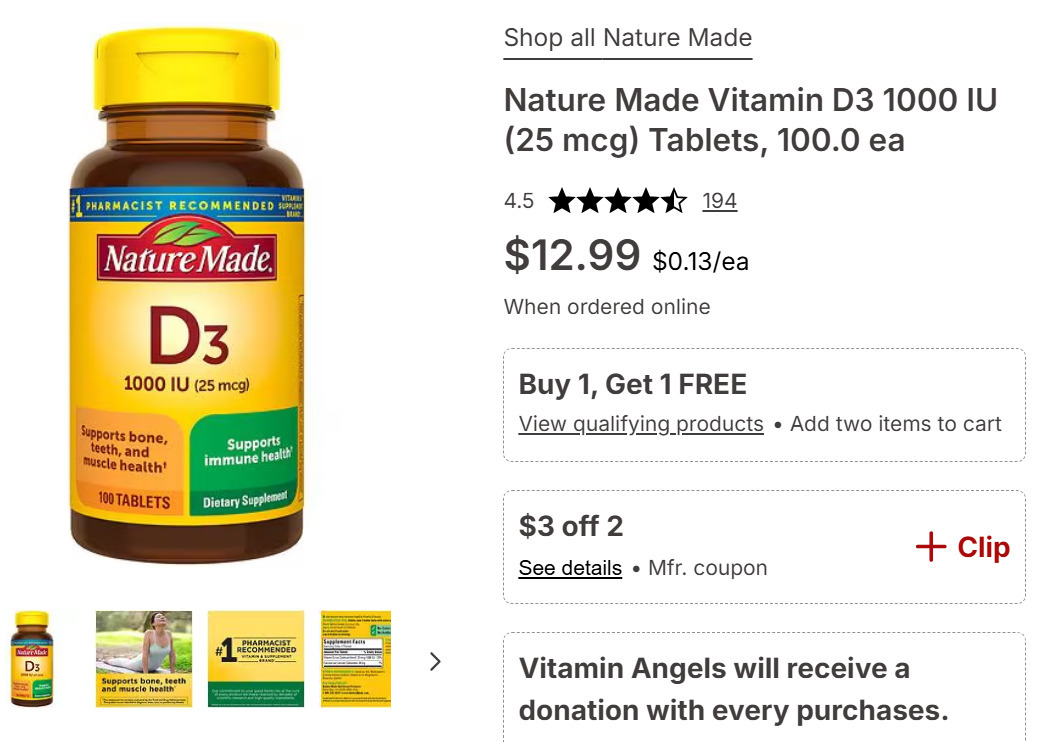
Capsule vs Tablet: Differences in Absorption
Here comes a key concept—bioavailability. It measures how much of and how quickly the good stuff in a medicine or supplement is absorbed in the body.
So how do tablets and capsules perform when someone actually takes them?
In terms of absorption speed, capsules generally tend to break down and release their contents faster than regular tablets. The capsule shell (often made of gelatin) dissolves quickly in the stomach, so the active ingredients inside are released more readily and enter the bloodstream faster.
Additionally, capsules contain fewer excipients, which leads to quicker and more effective absorption. For this reason, if your new product wants a quicker onset of action, like painkillers or antibiotics, capsules often have the edge.
Tablets are compressed powder. They need to break down into smaller particles and dissolve before getting into the body. It results in a slower rate of absorption than capsules.
But slower isn’t always a bad thing! Tablets have their perks. If you’re designing a drug that is sensitive to stomach acid or needs to be consistently working in the body, tablets are the go-to format. This solid dosage form can be formulated with special coatings or ingredients to release the drug at the right spot, for instance, the small intestine, or over a longer period.
Capsule vs Tablet: Considerations for Allergies
Allergy is a big deal, whether you take a drug or a vitamin. It’s important to figure out what may trigger sensitivities or allergic reactions and how to deal with them.
| Dosage Form | Potential Allergens / Sensitivities | Key Considerations for Manufacturers |
| Capsules | Gelatin (animal-derived), colorants, preservatives | – Choose vegetarian (HPMC) or pullulan shells for vegan/halal markets.- Opt for capsules labeled “vegetarian,” “vegan,” or “allergen-free.” |
| Tablets | Lactose, gluten, cornstarch, artificial colorants and sweeteners, coatings | – Use gluten-free, lactose-free, or dye-free excipients.- Consider “clean label” coatings for nutraceutical branding. |
How to Choose Between Tablets and Capsules?
Choosing between tablets and capsules starts with understanding your customers’ wants. At the end of the day, it’s about the customer experience. Both dosage forms are popular, but they appeal to different audiences.
First off, let’s take a quick tour of the good things about these two solid dosage forms.
| Capsules | Tablets |
| Easier to swallow | More cost-effective |
| Mask unpleasant tastes and odors | Flexible dosing (can be split or crushed) |
| Leave no aftertaste | Offer many formats: chewable, effervescent, extended- or delayed-release, lozenges |
| Contain few additives | Longer shelf life |
| Act faster in the body | No risk of gelatin sensitivity |
| Perceived as higher-quality or premium | Can hold a higher dose of active ingredients |
Surveys show that capsules are often preferred over tablets, especially in the supplement space. This preference shift is steering the market. Many manufacturers might lean toward capsules when planning new product launches. But that doesn’t mean tablets should be overlooked. Tablets are still popular with some consumers because they are affordable, easy to adjust in dosage, and available in a wide range of formats.
Can You Crush Tablets or Open Capsules?
From many consumers’ perspectives, opening a capsule pill or crushing a tablet makes it easier to take, but it’s not always a safe move.
Crushing Tablets
For people who struggle to swallow pills, many immediate-release tablets can be safely crushed to mix with food or liquid. In this way, people can take them more easily. Some tablets are even scored to be split in half.
🚫Do NOT crush enteric-coated or extended-release tablets. Crushing them destroys their special coating. The crushed pills can irritate your stomach or release the entire dose at once. This could risk side effects or overdose.
Opening Capsules
You can open some standard hard-shell capsules to sprinkle the powder onto food or mix it with water. This should only be done if the product is intended for this purpose.
🚫Do NOT open capsules that are time-release, delayed-release, or contain potent ingredients. Like liquid capsules and softgels, breaking them changes how the drug is absorbed.
Best Practice
- Always check the product instructions.
- Ask a pharmacist before use.
Tips for Swallowing a Tablet or Capsule
Not everyone finds it easy to swallow pills—and that’s okay. Here are some simple tricks that can make it easier:

- Take with Plenty of Water: Drink a sip before to wet your throat. Then place the pill on your tongue and wash it down with more water.
- Try the “Lean Forward” Method: Place the capsule on your tongue. Take a sip of water. Then lean your head slightly forward before swallowing. This helps the capsule float to the back of your throat.
- Use the “Pop Bottle” Method: Put the tablet in your mouth. Place your lips tightly around a full water bottle. Then suck the water in. This motion helps tablets slide down more easily.
- Practice with Small Candy: For children or adults who are nervous, practicing with tiny pieces of candy can help build confidence.
If you still find it intimidating to swallow a pill, look for alternatives. Many products come in smaller tablets, chewables, liquids, or powders.
Final Thoughts
When it comes to tablet vs capsule, there’s no universal “winner.”
Your decision depends on:
- Your formula (powder, liquid, sensitive ingredient?)
- Your manufacturing setup (tablet press or capsule filler?)
- Your market audience (budget-conscious or premium/natural?)
With today’s pharma and nutraceutical machinery, both options are well supported. Many successful companies use a mix of tablets and capsules across their product lines to serve different needs.